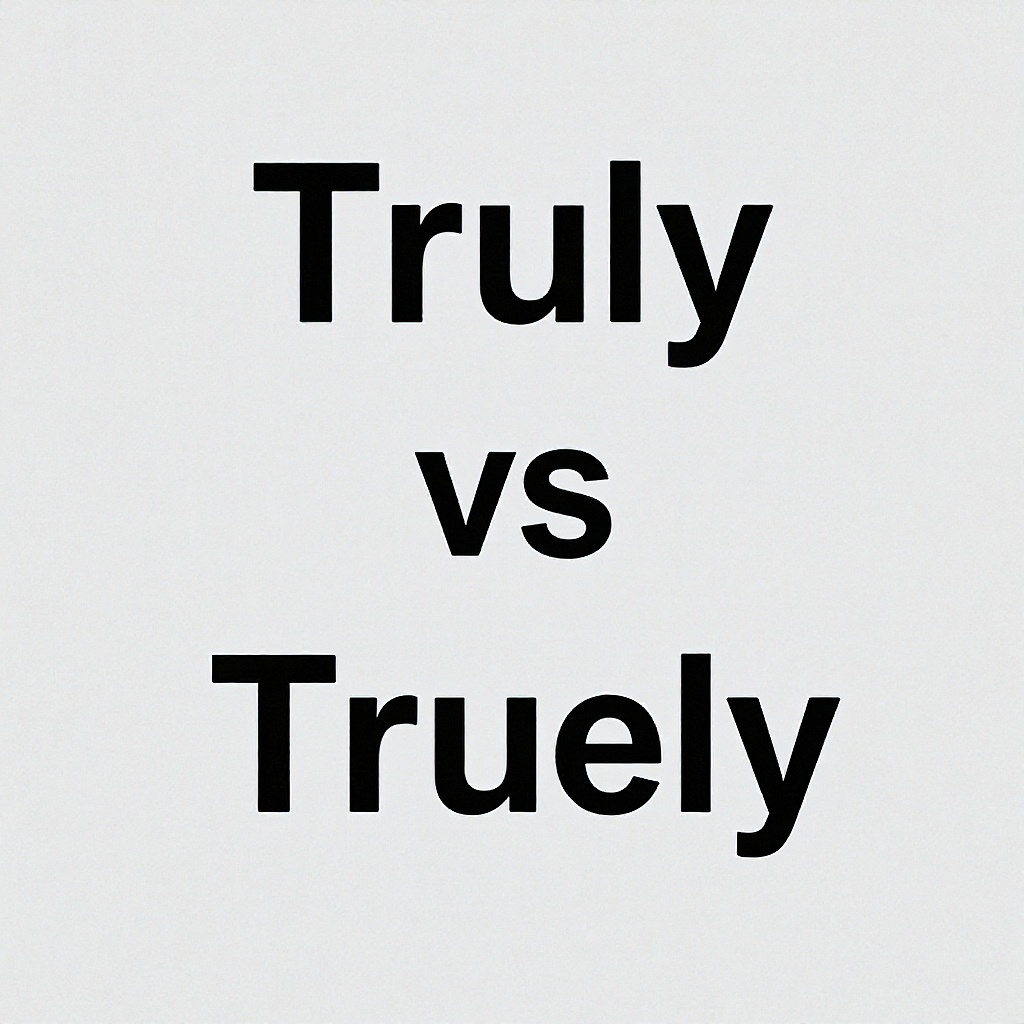"Truly" Vs "Truely" - What's the Difference

English spelling can be tricky. Sometimes words don’t follow the patterns you expect, which leads to common mistakes. A classic example is “truly” vs “truely.”
So, which one is correct? Today, Midoo AI will explain the difference, show you why the confusion happens, and give you easy tricks to always spell it right.
The Correct Spelling: Truly
The correct word is truly — without an “e.”
It’s the adverb form of true and means “in a truthful way,” “really,” or “genuinely.”
Examples of “Truly”:
- She is a truly kind person.
- I truly appreciate your help.
- That was a truly amazing performance.
- Do you truly believe that story?
- He is truly sorry for his mistake.
Why “Truely” Looks Right (But Isn’t)
Many learners mistakenly add an e before -ly, creating “truely.” This error happens because lots of words ending in -e keep the “e” when you add -ly.
For example:
- whole → wholly
- absolute → absolutely
- sincere → sincerely
So, people assume true → truely. But English loves exceptions, and “true” drops the “e” before adding -ly.
👉 Therefore, truely is always incorrect.
Quick Rule
- Drop the final “e” in true before adding ly.
- Result: true → truly.
Comparison Table
| Word | Correct? | Meaning | Example |
|---|---|---|---|
| Truly | ✅ Yes | In a truthful, real, or genuine way | She is truly talented. |
| Truely | ❌ No | ❌ Not a real word | (Never correct) |
Common Contexts for “Truly”
Expressing honesty
- I truly didn’t know the answer.
Showing strong feelings
- He was truly grateful for her support.
Emphasizing reality
- That’s a truly unique idea.
Formal endings (like in letters)
- Yours truly,
- Very truly yours,
Memory Tricks
- Think of truly = truthfully. Both words have no “e” before the -ly.
- Imagine crossing out the “e” in true as you add ly.
- Remember: Truely isn’t truly a word.
Common Mistakes
❌ I truely believe in you. ✔️ I truly believe in you.
❌ That was a truely great movie. ✔️ That was a truly great movie.
FAQs
Is “truely” ever correct in British English?
No. “Truely” is wrong in both American and British English.
Why does “true” lose the “e” in “truly”?
It’s just an old spelling rule exception. Over time, English simplified the word to “truly.”
Is “truly” formal or informal?
It works in both. You can use it in casual speech (“That’s truly awesome”) and in formal writing (“Yours truly”).
Can I replace “truly” with “really”?
Often, yes. For example: “I truly enjoyed it” = “I really enjoyed it.” But “truly” can sound a bit stronger or more formal.
What’s the difference between “truly” and “truthfully”?
They’re close in meaning, but “truthfully” emphasizes honesty, while “truly” can also mean genuinely or really.
Final Thoughts
The difference between “truly” and “truely” is simple:
- Truly = correct spelling.
- Truely = always wrong.
So next time you write, remember: Truely isn’t truly a word! Stick with truly, and you’ll always be right.